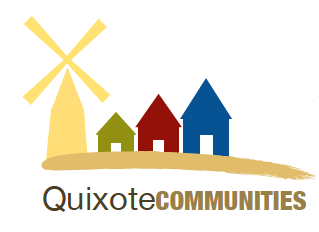|
Olympia Community Solar
Mason Rolph (he/him), President info@olysol.org Office: (360) 481-4020 Quixote Communities Ken Bailey (he/him), Program Manager ken@quixotecommunities.org Office: (360) 464-3712 FOR IMMEDIATE RELEASE: Quixote Communities And Olympia Community Solar Announce Quixote Village Solar Project Ribbon Cutting Ceremony. What: Quixote Village Solar Project Ribbon Cutting Ceremony When: Friday, November 18th, 11am-12pm Where: Quixote Village, 3350 Mottman Rd SW, Olympia, WA 98512 November 18th, 2022– Olympia, WA –– Quixote communities and Olympia Community Solar are inviting everyone to a special ribbon cutting ceremony marking the completion of the Quixote Village Solar Project. Construction of the solar array on Quixote Village’s 30 tiny homes and community building was completed on August 20th. Come by the courtyard steps in the back at 11am to hear from a handful of project partners and Quixote residents followed by a ribbon cutting ceremony to mark the beginning of the project going online! A light reception will take place afterwards. As an integral community resource for the unhoused in Olympia, Quixote Village is an ideal location for hosting solar. The Quixote Village solar project includes four solar panels across each of the thirty tiny homes and 86 panels on the community building (206 total). South Sound Solar designed and installed the 66 kilowatt system. “We are extremely excited to go solar at Quixote Village. We are grateful for our partners and funders for making this possible. This will not only reduce our carbon footprint, but the cost savings will let us focus more on providing services to our residents.” stated Quixote Village Associate Director Jaycie Osterberg-Brown. The installation will reduce the village’s energy bill, saving more than $551,000 over the next forty years. Savings from the solar energy will directly benefit village residents by making more resources available for mental health programs and services. The solar energy will reduce Quixote Village’s carbon footprint by 58 thousand pounds of CO2 emissions, equivalent to planting 705 trees every year, or not driving 106,000 miles. The project’s Silfab Solar Panels were manufactured in Washington State. "I am excited for the solar panel installation because it will be very beneficial to the Village and allow us to be more environmentally friendly and hopefully we will be able to save money to continue to benefit the Village." said Quixote Village Resident Nancy. This project is another example of the work that Olympia Community Solar does creating clean energy opportunities for people and organizations who thought Solar was out of reach. Olympia Community Solar developed the project and secured five grants to fund the project. Project funding came from The City of Olympia, Puget Sound Energy, the Squaxin Island Tribe, and the Tides Foundation. “The Quixote Village solar project is an example of how solar energy may be leveraged as a powerful tool for equity. Solar energy is not only a climate solution, it is a vehicle for economic justice” stated Olympia Community Solar President Mason Rolph. On August 2nd the Village hosted Congresswoman Marilyn Strickland for a solar project tour and got a chance to hear from partners and residents directly about how remarkable it is for these community members to produce their own energy. “The Quixote Village and Olympia Community Solar partnership will increase equitable access to cleaner and more affordable energy sources,” said Congresswoman Marilyn Strickland (WA-10). “That’s why I was proud to support the Bipartisan Infrastructure Law, and other legislation that will further support clean energy investments across the South Sound.” —------------- ABOUT QUIXOTE VILLAGE: Quixote Communities is a 501c3 nonprofit organization incorporated under the name Panza. Its mission is to provide permanent supportive housing for people experiencing homelessness. Quixote Communities creates and manages tiny home villages that foster community, encourage personal growth, and promote access to care and services. It currently owns and operates Quixote Village in Olympia, which opened in 2013, and the Orting Veterans Village, which opened in 2021.They are currently working on the Shelton Veterans Village, slated to open in 2023. Learn more at www.quixotecommunities.org ABOUT OLYMPIA COMMUNITY SOLAR: The mission at Olympia Community Solar, a nonprofit organization, is to steward an equitable and accessible transition to clean energy through community solar education, policy, and project development. Learn more at https://olysol.org/. ABOUT SOUTH SOUND SOLAR: South Sound Solar has been installing residential and commercial solar systems for over 14 years, primarily focused in the six-county area of Thurston, Mason, Lewis, Grays Harbor, Pierce and Kitsap. They are a Tier 1 installer in the PSE Contractor Alliance Network and were founding members of the Washington Solar Energy Industries Association. They are well known for their community contributions and dedication to equity. 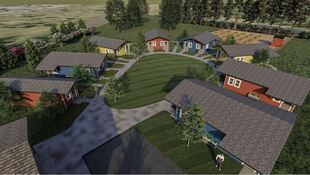 PRESS RELEASE FOR IMMEDIATE RELEASE September 1, 2022 Shelton Veterans Village Groundbreaking to House Homeless Veterans in Mason County Shelton, Washington – Quixote Communities and the City of Shelton are pleased to announce the groundbreaking for the new Shelton Veterans Village, a tiny house village, that will house 30 homeless veterans living in Mason County. Quixote Communities, a nonprofit known for Quixote Village, a tiny house village supporting 30 individuals in Olympia, will operate and manage the new project for veterans in Shelton. The City of Shelton has been instrumental in getting the project to construction and will continue as a supportive partner for the village. GS Consulting and Ally Community Development serve as the affordable housing developer of the Shelton Veterans Village. “We have experienced many successes at Quixote Village in Olympia as well as Orting Veterans Village in Pierce County. We are so proud to expand our model of permanent supportive housing to veterans in Mason County,” says Colleen Carmichael, Executive Director of Quixote Communities. “We will not only have affordable housing, but also full-time staff onsite to support the residents and the facilities.” In addition to the fully furnished tiny homes, there will be a large community building with a spacious double kitchen, dining area, multipurpose room, staff offices, as well as laundry facilities. Quixote Communities plans to partner with the WDVA and local resources in the community to provide a variety of services to the villagers. This will include transportation, care coordination, behavioral health services, and life skills classes. The village uses the Recovery Housing model, which provides a clean and sober living environment to its residents. Senator Sheldon of the 35th Legislative District has been a champion of the project since its inception. “I support this project because I know how crucial it is to provide housing and resources to our community. This is an innovative approach to homelessness which makes housing the priority and it also recognizes the important contribution made by our veterans, who deserve our support after their service to our country. I am honored to have been a part of this project and can’t wait to see the impact it has on our veterans.” Quixote Communities received capital funding from the Washington State Housing Trust Fund, Mason County, the Federal Home Loan Bank, the Norcliffe Foundation, Medina Foundation, and Project-Based Vouchers and VASH Vouchers from the Bremerton Housing Authority. They also received support and leased land from the City of Shelton. “Quixote Communities and their partners have worked tirelessly on this new Veterans Village for Shelton,” said Eric Onisko, Mayor of the City of Shelton. “This model will be crucial in our community for our homeless veterans, and I am looking forward to continuing to partner with Quixote Communities as construction begins.” In addition to the funding partners, the project team includes MSGS Architects as the architect, FORMA Construction, as the General Contractor, Olympic Engineering as the Civil Engineer, and landscaping support from the Mason Conservation District. The Shelton Veterans Village is set to open in the summer of 2023. For additional information on the Shelton Veterans Village please contact our Executive Director Colleen Carmichael at (360) 932-9359 or visit www.quixotecommunities.org. About Quixote Communities Quixote Communities is a 501c3 nonprofit organization incorporated in Washington under the name Panza. Their mission is to provide permanent supportive housing for people experiencing homelessness: They create and manage tiny home villages that foster community, encourage personal growth, and promote access to the care and services their residents need. They currently own and operate Quixote Village in Olympia, and Orting Veterans Village in Orting. Camp Quixote Retrospective
Author: Rob Richards In the fall of 2006, I had been on staff at Bread & Roses (B&R) in Olympia for about three years. Founded in the early 80s, B&R was a Catholic Worker house inspired by Dorothy Day's work with the poor and marginalized in our society. In Olympia, the organization had grown to encompass the original house (on 8th Ave between Boundary and Central), used as a community gathering place and where the staff lived. We all got room and board and a small monthly stipend for our work. Next door to the staff house sat a duplex that housed our women's shelter, where up to a dozen women stayed, working with an advocate, until they were ready to move on. We also had an advocacy center in Downtown Olympia where folks could drop in, take a load off, and work with an advocate. But, above all else, we wanted it to be a safe harbor. A place you could shed the world's pressures and just be you. And when you were ready for it, help was available. By the summer of 2006, I had been at Bread and Roses for three years, witnessing the direct impact of homelessness on the lives of people I had come to care for and love very much. They were tormented daily by predators, police, and policies – all compounding to make it nearly impossible to recover from the cycle of homelessness. A friend compared it to being stopped on the side of the freeway, and every time you tried to pull out into the lane, a car would come whipping by, and you'd have to stop again. Resources were scarce and getting scarcer. Our city council at the time took a more conservative, "pro-business" approach. Instead of helping people, they passed measures that criminalized their existence and freedom to live in our community. This trend culminated in the Summer of 2006 as a Pedestrian Interference Ordinance (PIO) that would strip people's right to gather in public spaces – namely, our sidewalks – during certain times of the day. The PIO followed other ordinances that targeted camping in public places, car-camping, and panhandling. I remember how powerless I felt. I was tired of watching my friends die for no reason. People were sad, scared, and angry and didn't know what to do. They had become used to just taking their lumps without a fight. Many had become resigned to being relegated to second-class status. Tim, a friend who had been houseless off and on most of his life, was angry and wanted to do something about it. A group of us had movie nights where we would watch political or historical documentaries and films and then discuss how they applied to what was happening locally. During one of these, the conversation began about political action in response to the ordinances. That night we laid the groundwork for what would become known as Camp Quixote – I remember coming up with the name as a show of solidarity to a group in Paris involved in a similar tent city protest. We also chose a name for our newly conceived group, the Poor People's Union (PPU), which would serve as the camp's organizing body. The first meeting of the PPU was on a Saturday afternoon at the Bread & Roses Advocacy Center. It drew (probably because of the free pizza) about two dozen people. We laid out our vision to create a tent city where folks could live with the safety and security that a tight-knit community provides and work toward a permanent location. They would be free of the pressures of the social service system and able to recover at their own pace. We didn't know how people would respond going into that first meeting, and I don't think any of us were quite expecting the response we got. People were excited. Their eyes were alive, and you could feel their hope. Solidarity is an overused word, but that's what they felt. They didn't feel alone for the first time in a long time. We officially formed the PPU. We made membership cards and pins to wear. There was a Street Contingent, the folks who were living rough, and a Support Contingent of housed allies. The Street Contingent voted for dues at $1 for a lifetime membership. The Support Contingent created a scholarship fund for anyone who couldn't pay. We started having general meetings every Saturday where we would plan every aspect of the camp. We formed subcommittees to write camp rules and regulations, plan camp security, site selection, kitchen crew, communications, and camp design. We elected leaders for each committee, and they would give progress reports at the general meetings on Saturdays. Only members of the Street Contingent – folks who would be camp residents – could hold leadership roles. The rest of us took on responsibilities in support of and directed by the leadership team. I was a member of the site selection committee. After vetting multiple options, we determined that the ideal location would be a parking lot downtown owned by the City of Olympia. We had various reasons why we ended up where we did. Primarily, our fight was with the City of Olympia, so locating on city property made more sense than private or non-city land. The lot was also in the Downtown core, on one of the busiest streets in the county, providing a central location and tons of visibility. Thousands of people would drive by every day that otherwise might not have known the camp existed. Many got curious and pulled off to see what was up. Many of those people came back with supplies or to volunteer. That was huge for the campers' morale, and the community's support would prove critical later. The group decided that February 1st, 2007, would be the move-in day. It was also the day the Pedestrian Interference Ordinance was to take effect. That gave us only a couple of months to finish our preparations. Supplies needed organizing and materials gathered. So we spent those final two months busily staging materials and methodically crafting the action plan for move-in day. When February 1st rolled around, we set our plan in motion. The first step was to set up the tents. We laid out pallets and tarps, then erected and waterproofed tents. Simultaneously, we ordered port-a-potties, and the kitchen crew set up the mess tent and started prepping dinner. By the end of that first day, we had over twenty tents set up, and we all were able to have a makeshift meal together. Day two brought more people and more tents to set up, and the folks in charge of camp layout took on the newcomers and gave them jobs in the camp. Positions included a rotating 24-hour security detail, kitchen crew, camp maintenance, and neighborhood clean-up. Neighborhood clean-up was essential to the campers, who wanted to be good neighbors. So they devised a daily litter patrol to tidy up the blocks surrounding the camp. On day three, materials arrived for the Common House, to be erected in the center of the ring of tents. It would serve as our gathering place for camp meetings, meals, and nightly entertainment. The construction team built out the frames for the walls and roof, and just like an old-fashioned barn raising, we all helped pull them upright and hold them in place while others hammered everything together. While this was happening, the kitchen crew was prepping a colossal chicken dinner, using chicken donated by Top Foods and rice and veggies donated by community members. That night was one of the most joyous nights I've ever experienced. We ate, danced, laughed, and enjoyed each other's company inside this great hall we built together. I had never felt more alive than I did that night. Seeing those faces that for years had been weighed down by the pressure of life on the streets, the constant fear, stress, humiliation – all of that lifted away. Instead, you could see their inner beauty, what was inside them, and what can be drawn out of a person if we choose to bring people in rather than push them away. The response to our presence from the surrounding community was, for the most part, positive. For example, Ben Moore's, a restaurant located on the same block, brought us a huge pot of hot soup every day – and a "We heart Camp Quixote" sign hung in their window for years after. Donations from community members - Blankets, tarps, sleeping bags, warm clothes, food, and more were coming in steadily. Parents would bring their children down to visit, and we would have conversations with them about homelessness and why the camp was there. On the other hand, the City of Olympia was not as supportive. They informed us that we were trespassing and would face arrest if we didn't pack up and move out immediately. We quickly formed an intelligence-gathering committee to monitor radios and scout out locations where police stage for raids. We wanted the earliest possible warning to get people out who couldn't risk arrest or would be at risk if the police used force, especially tear gas. The City Council then instructed staff to notify us that we were trespassing and must vacate the property, or they would send in OPD to disperse the campers. The local paper, The Olympian, was equally unsupportive. They ran an editorial urging the City to immediately break up the camp and arrest all of us. We knew that the threat of a police raid weighed heavily on folks, so we started making a plan to move the camp. We began exploring many options, including moving to a different lot downtown or finding a space hidden in the woods. I will note, however, that the campers were unanimous that giving up was not an option. One member of our extended support network had the idea of asking a church, specifically their church, the Olympia Unitarian Universalist Congregation (OUUC), to allow the camp to move to their property. The OUUC board was having a meeting the following evening, and our supporters volunteered to attend and request sanctuary on their property. When the news came that the OUUC Board had decided to grant us refuge, it hit the camp and spread fast. People were ecstatic, inspired, and relieved – this was a victory. We notified the media and the city and began packing for an early morning move. The following morning at 5 am, with everyone except the security detail sound asleep, the Olympia Police Department, with the then City Manager watching from a safe distance, descended upon the camp in a loud, showy display. They had tipped off The Olympian newspaper, so a reporter and photographer were there to ensure the city got its photo op. The pre-dawn raid shocked the campers, some of whom fled and abandoned their belongings. Those who stayed were shaken and scared from the violent, unexpected, and abrupt awakening. A few people who fled weren't seen for weeks because they feared that OPD was after them. As morning broke and the shock subsided, our volunteers arrived to help us move and set up the new camp. A couple of weeks later, the congregants at OUUC voted to allow the camp to stay for an extended period. After that, work began to create structure and formalize the relationship. The City of Olympia and Thurston County Health Department regulated health and safety at the camp. The Panza Board was then formed to support the camp in its journey. To guide, not to govern it, an idea that has held throughout the years. A few years later, as a member of the Olympia Planning Commission, the camp came back into my life. The question before the commission was whether or not to allow a permanent homeless encampment inside the City of Olympia. Regulations at the time only allowed for a temporary camp that had to move every 90 days. I convinced my fellow commissioners to vote in favor of my motion to recommend the change to our City Council. I was proud to be part of this next step for the camp. Finally, the vision we set all those years ago, of having a permanent site with little houses, was becoming a reality. Eventually, at the groundbreaking ceremony, I stood on the empty lot that would be Quixote Village. I watched my dear friend Kevin, who had overcome so much, plunge his golden shovel into the rocky soil, breaking ground and initiating the final phase of the Camp's evolution. I could not have been prouder. I fought tears as I relived in my mind those nine days in February of '07. A few more years later, as a congressional staffer in the office of Congressman Derek Kilmer, I was approached by Beth Doglio, a board member of Quixote Villages, for help securing some housing vouchers for their veteran's village in Mason County. I worked with staff to help them make connections, and they successfully got those vouchers that were critical to the project. I will never forget those beautiful people of Camp Quixote – so often shoved aside and kicked around – who decided they'd had enough one day. They showed bravery and strength beyond words—vigor and resilience in the face of turmoil and constant threats. But more than anything, they taught me the power of grace. That you should show more grace than people deserve because you change the world by being better, not by slamming doors in peoples' faces. The camp succeeded and is living its dream today because we allowed the campers to lead us. The Quixote Village model is spreading because there's no stopping love. That I got to play a small part in the camp's formation and its continued success is something I will never forget, and I will always carry the lessons I learned from this experience. Love is an action. Act. Early one Saturday morning in mid-January 2022, representatives from the Naval Civilian Managers Association and members of the Combat Veterans Motorcycle Association met in Shelton, WA to present donations checks to Ms. Colleen Carmichael, Executive Director for Quixote Communities. Quixote Communities is a 501c2 non-profit that sponsors the construction and operation of housing communities for the formerly homeless. It currently operates two housing villages in Olympia and Orting. The Shelton Veterans Village Project received initial state legislative funding due to the support and efforts of Senator Tim Sheldon who had the vision of building a tiny home village for veterans experiencing homelessness in Mason County. More opportunities to volunteer time and energy will be abound to move this project along to fruition. Although a lot of work lies ahead, the community is coming together to bring all resources to bear to provide a much needed facility and sense of community in the services of those who served. Article by Walt Channell.
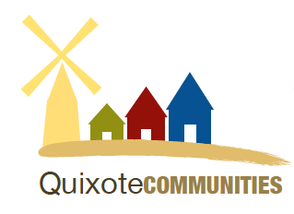 Quixote Communities Orting Veterans Village 19607 162nd Ave E Orting, WA 98360 info@quixotecommunities.org 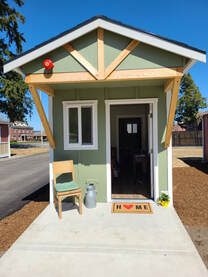 PRESS RELEASE FOR IMMEDIATE RELEASE May 10, 2021 Orting Veterans Village Opening to House Homeless Veterans in Pierce County Orting, Washington – Quixote Communities will begin a phased opening of the Orting Veterans Village beginning May 10, 2021. At full capacity, this tiny home village will house 35 homeless veterans living in Pierce County. The village is located on the Washington Department of Veterans Affairs’ Soldiers Home campus. Quixote Communities will hold an online grand opening event on May 25th at 12:15 pm. The public is invited to participate and can RSVP for free at www.quixotecommunities.org or by scanning the QR code below. The Cowlitz Tribal Foundation Statewide Fund is the premier sponsor of the event. Quixote Communities, a nonprofit known for its award-winning Quixote Village, a tiny home village supporting 30 individuals in Olympia, will operate and manage the new project for veterans in Orting. The Puget Sound Veterans Hope Center has been instrumental in developing the project and will continue as a supportive partner for the village. “With hundreds of homeless veterans in Pierce County alone, we are thrilled to be able to provide permanent supportive housing to some of the homeless men and women who have served our country,” said Jaycie Osterberg, Executive Director of Quixote Communities. “Quixote Communities will provide our residents one-on-one staff support to help them determine and meet their needs. They will also benefit from a built-in community of peers surrounding them. We want to help Pierce County veterans get housed, stay housed, and have a better quality of life”. Each tiny home is energy-smart, heated, well-insulated, and built to code with the quality required of a permanent dwelling. They are fully furnished and have a private toilet, shower, and sink. In addition to the tiny homes , there is a large community center with a spacious kitchen, dining area, multipurpose room, staff offices, computer area, as well as laundry facilities. There are three full-time staff including a Program Manager, Case Manager, and Volunteer Coordinator. Quixote Communities will continue its partnership with the Washington State Department of Veterans Affairs and local community resources to provide a variety of services to the vets. This will include transportation, care coordination, behavioral health services, and life skills classes. The village uses the Recovery Housing model, which provides a clean and sober living environment to its residents Quixote Communities received capital funding from the Washington State Housing Trust Fund, Pierce County, the Federal Home Loan Bank, and the United Way, and Project-Based Vouchers from the Pierce County Housing Authority and HUD-VASH to support its operations. They also received support and land from the Washington State Department of Veteran Affairs. In addition to the funding partners, the project team includes Community Frameworks as the affordable housing developer, MSGS Architects as the architect, Buchanan General Contracting Company as the general contractor, JMJ Team as the civil engineer, and Carriage Houses NW as the modular manufacturers. For additional information on the Orting Veterans Village and how to get involved please contact Jaycie Osterberg at (360) 808-3110 or visit www.quixotecommunities.org. Quixote holds digital Q&As on the second Wednesday of every month at 5:30pm. You can sign up through the Orting Veterans Village Facebook page. About Quixote Communities Quixote Communities is a 501c3 nonprofit organization incorporated under the name Panza. Its mission is to provide permanent supportive housing for people experiencing homelessness. Quixote Communities creates and manages tiny home villages that foster community, encourage personal growth, and promote access to care and services. It currently owns and operates Quixote Village in Olympia, which opened in 2013, and also working on another veterans village in Shelton, which is currently in the permitting process. Hi all! We've got so much to talk about! Things have been busier than ever at QV. We just hired a new Resident Advocate, have had a few folks move on into their own apartments, and have welcomed some new members into our community. I am continuously amazed by all the hard work staff and residents put in to better themselves and their community as a whole. I am extremely lucky to be able to get to know and grow meaningful relationships with each and every one of the residents.
We hired Marissa Finn, the new Resident Advocate, at the beginning of March. Her and our Program Manager Amanda Eichelberger have become quite the team (which is essential when they are the only two staff on site)! Amanda and Marissa along with our intern Luca are working on ways for more community engagement. I am excited to see how they will continue to better our programs and quality of care. A solid and passionate crew is crucial for our community and I am extremely grateful for the supportive staff we have and their commitment to Quixote and the individuals that live there. We are still in the development stages for our next villages in Orting and Shelton. For Orting we are dotting all of our i's and crossing our t's in order to have our Conditional Use Permit hearing. Once we have the OK we will then be able to build! We are hoping for a 6-9 months building period and will open right afterwards. The village will be for homeless Veterans in Pierce County and will be located on the Washington Department of Veterans Affairs' Soldier's Home Campus in Orting. After about a year of looking for land, we just signed a lease on city land in Shelton! This village will be for Veterans as well. We are now starting the process for the different land surveys and environmental reviews to get our Conditional Use Permit hearing ASAP! We are looking for people who are interested in helping paint, landscape, or donate (appliances, toilets, fridges, beds, etc.). If you are interested please contact us! (360) 791-8999 or jaycie.osterberg@quixotevillage.com. I've been busy working in three different counties and am so thrilled that we'll be able to house more people. After the two veterans villages open, we will be tripling our homes! We've found that this community atmosphere with not only supportive staff, but supportive neighbors, has been life changing for our residents. We can't wait to build more housing! We couldn't have done it without all of the support from people like you. Hi! My name is Luca Day and I have been fulfilling an internship at Quixote Village for a few months now through the Center for Community-Based Learning and Action at The Evergreen State College. Before working here I had plugged into other community service positions around Olympia, but had minimal experience working with folks who have experienced homelessness. Because of this I wasn’t quite sure what to expect of my time at QV and what the work would look like. I have come to be very grateful for my position here and all that it’s taught me.
The most rewarding aspect of my internship has been to build relationships with the residents here. It’s an usual situation to essentially go to work in someone else’s home. As you might imagine, it takes times to establish trust and comfort in a sensitive scenario such as this. It’s been a gift to have the residents share their stories with me, and to watch as we get to know one another a bit better each week. It’s also been a gift to learn from them as they constantly widen my lens of understanding and prompt me to explore the ways in which my experiences shape my perceptions and expectations. Another aspect of this internship that really stands out for me is my broadened awareness of how difficult it is to transition out of homelessness and navigate living in poverty. Part of my role here is doing advocacy work, and it’s mind-blowing to me how many walls I come up against in trying to help people access the most basic resources. I am seeing firsthand the importance of Housing First principles and also seeing how it’s truly not enough to just be housed. The amount of time and energy people must devote to seeking assistance from social service agencies is exhausting and almost a full-time job in itself, depending on the severity of an individual’s needs. Not to mention all the barriers in trying to do this work - hours worth of commuting on public transportation to run a single errand (But where does the money come from for bus passes?); trying to find access to the technology that will help someone get to these resources (How do you afford a phone? What if you need to go to the library to access the internet but you have no money to do so and you are dealing with major disabilities?); the sheer frustration of navigating institutions and the seemingly esoteric knowledge one must possess to do this (we just had a training on Medicare insurance and I don’t know anything more about it than I did before - which was very little). My biggest takeaway is definitely wanting to broaden other people’s visibility of how complicated and taxing it is to reach some sort of baseline stability when transitioning out of homelessness. I want to expand awareness of how providing housing is just one step out of many, and how truly impressive and monumental it is for people to undertake this transitional process. As those of us who are more privileged and housed come to understand this, I believe we can learn to better support those experiencing homelessness.  Well, you read that right! Panza is changing their name to Quixote Communities! We wanted to keep the spirit of our first tiny home village that started it all. We will be building TWO more villages in Shelton and Orting (both in Washington). These will be specific to veterans. We feel our model of rich peer mentorship and community living will work perfectly with our community members that have served our country. Stay tuned for more info! We are hoping to break ground ASAP! |
contributorsArchives
November 2022
Categories |
|
Contact
Tax ID: 32-0243330 Panza dba Quixote Communities is a 501(c)3 nonprofit organization that serves Western Washington. |
|
info@quixotecommunities.org | 360-338-0451 | 3350 Mottman Road SW Olympia, WA 98512
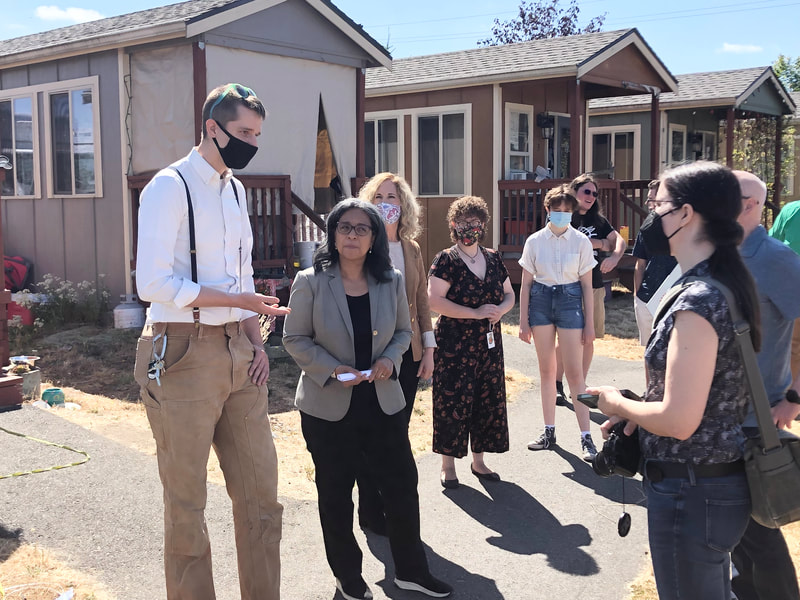
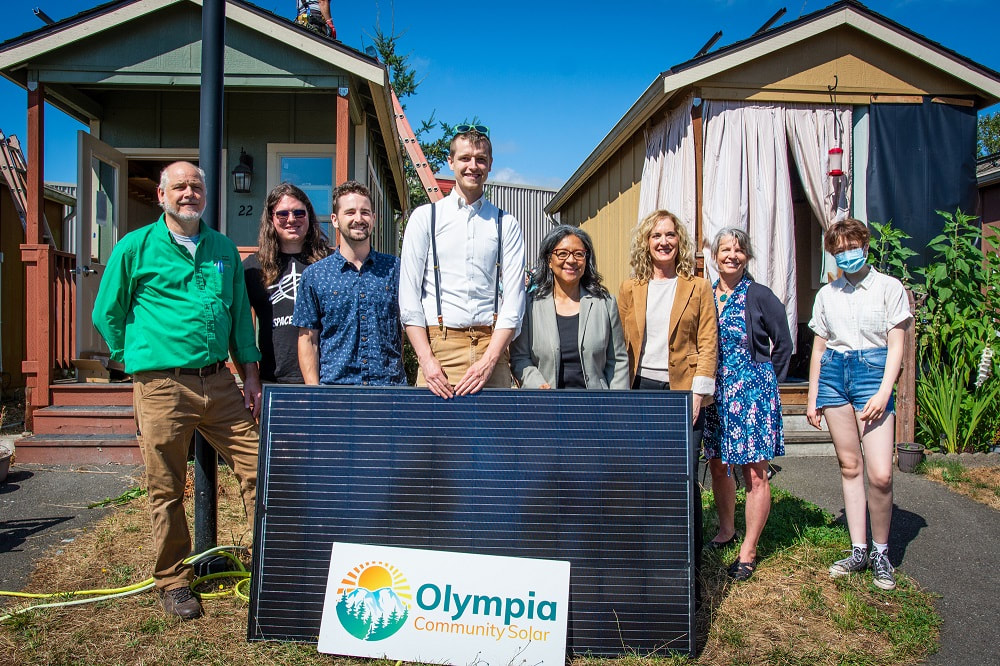
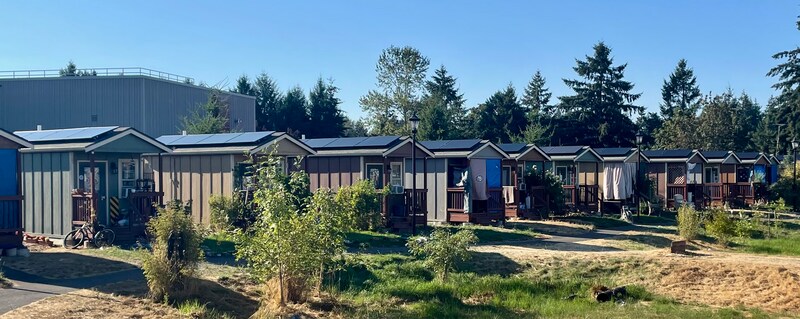
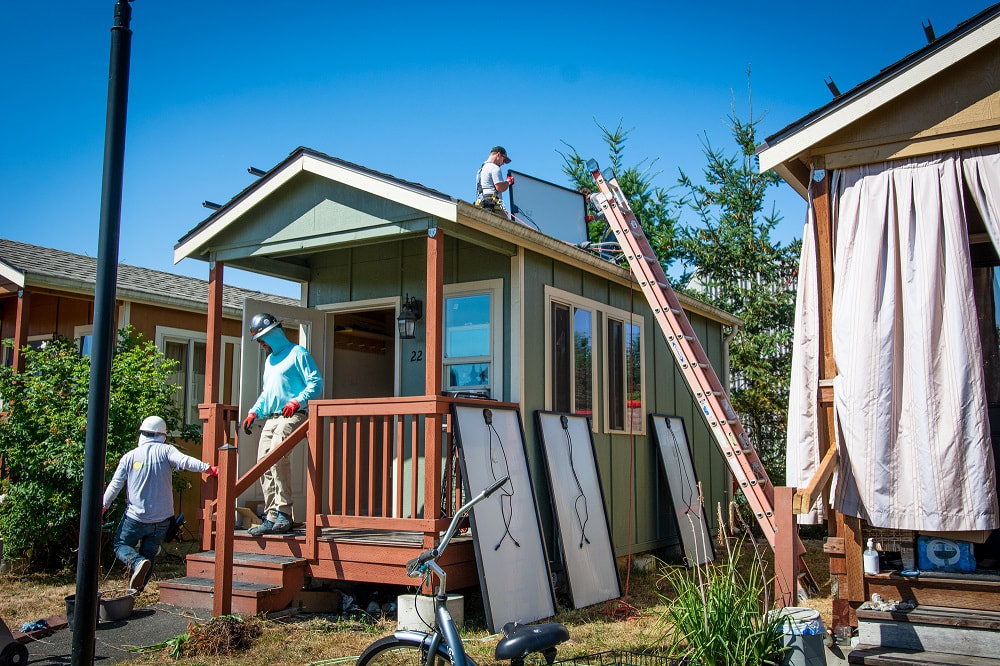

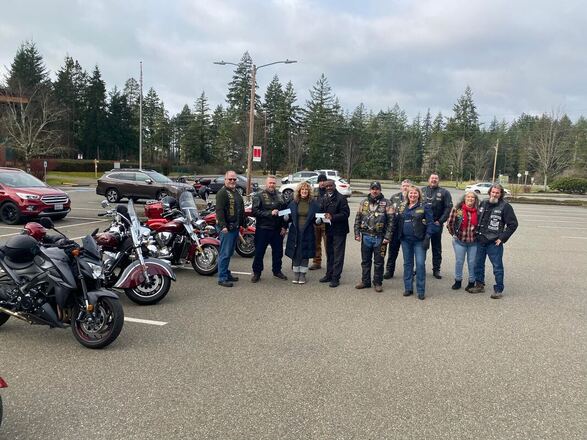

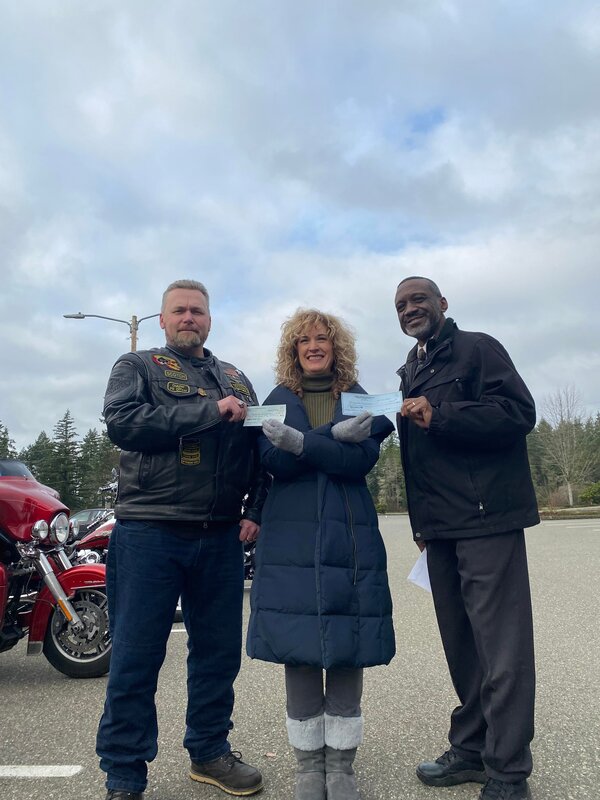

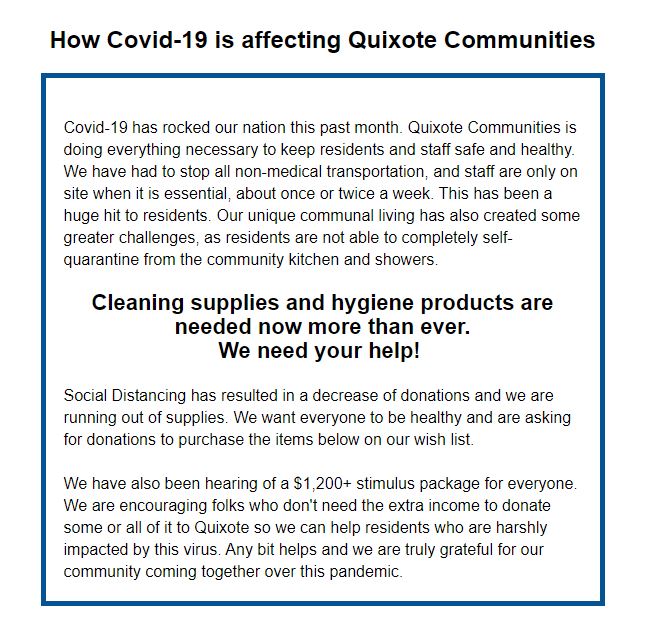
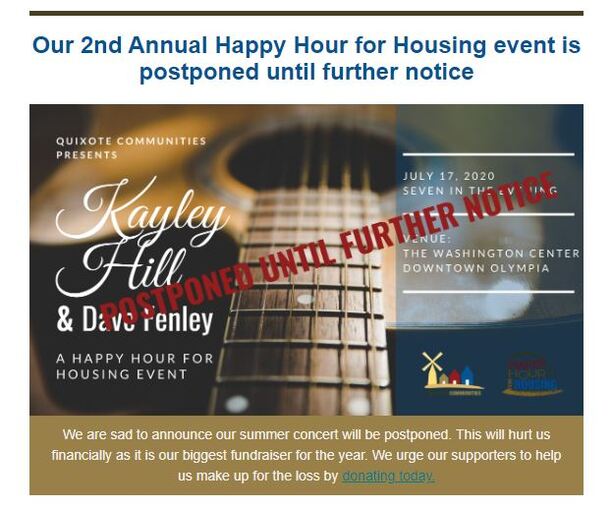

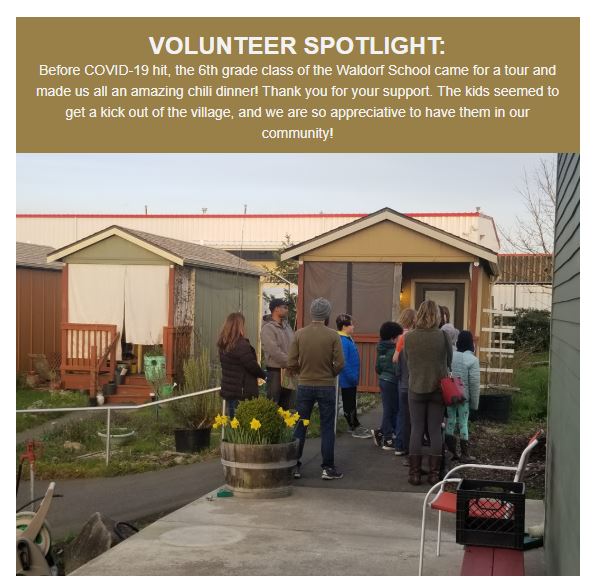

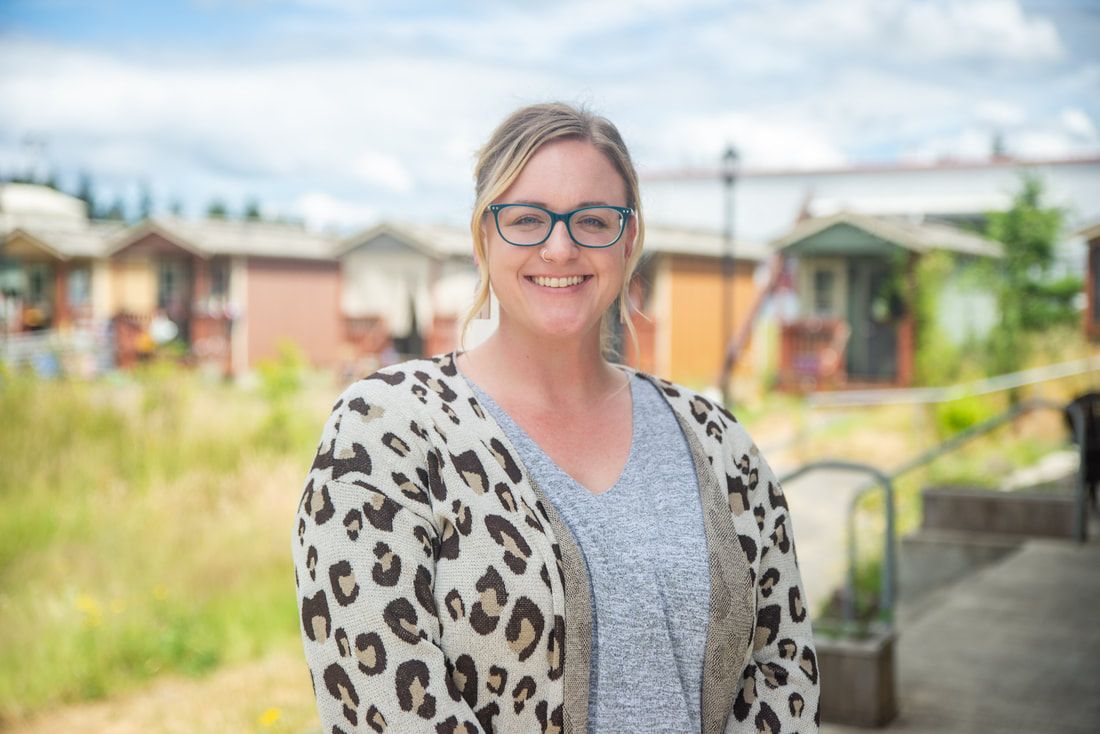
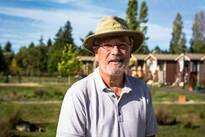
 RSS Feed
RSS Feed
